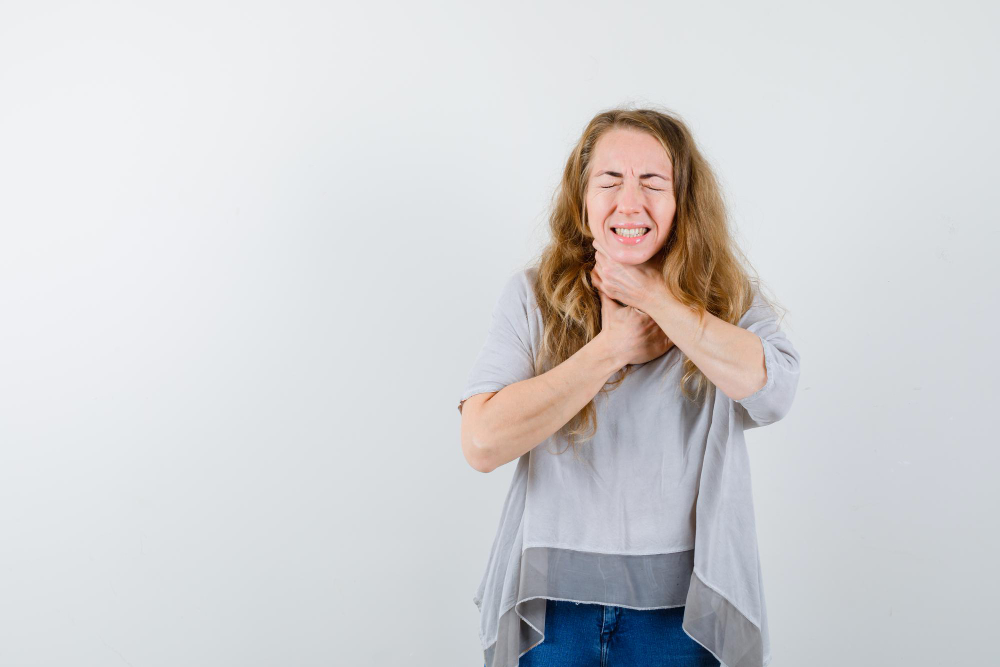Oral health is a very important part of general health, and care for it requires constant observation of changes in the mouth, such as sores, lesions, or other anomalies. Among these, mouth ulcers are one of the most common issues that people face at some point in their lives. But, it is also necessary to distinguish Difference Between Mouth Ulcers and Oral Cancer, one benign ulcer that is temporary and serious conditions such as oral cancer, which may have a similar presentation but a much different implication for health. In this article, we shall explore the Difference Between Mouth Ulcers and Oral Cancer, including causes, symptoms, diagnosis, and treatment options.
What Are Mouth Ulcers?

Before discussing about Difference Between Mouth Ulcers and Oral Cancer let’s briefly understand what is mouth ulcers.The smaller lesions appear in the mucosal tissue that forms parts of the gums, inside lip and cheek mucosa or inside the mouth. Common characteristics of aphthous ulcers are their circular to oval appearance, gray, yellow, or whitish color within the mouth and a surrounding red band. Generally benign, such lesions can self-heal after several days or less than two weeks.
Tip: You can also check out why does my scalp hurt? The most effective Solution to scalp pain
Causes of Mouth Ulcers
- 1. Minor injuries: Bites, sharp edges of food, or dental appliances such as braces can cause mouth ulcers.
- 2. Stress and hormonal changes: Emotional stress, hormonal changes, particularly during menstruation, can lead to mouth ulcers.
- 3. Certain foods: Spicy, acidic, or salty foods can irritate the lining of the mouth and result in ulcers.
- 4. Deficiency of some nutrients – Vitamins B12 and C, folic acid and iron deficiency leads to high risk of causing ulcers in the mouth
- 5. Underlying disease. Certain gastrointestinal illnesses including the Crohn or celiac disease, in addition to autoimmune diseases leads to oral ulcers as recurrent mouth ulcers.
- 6. Medications can induce certain ulcers on oral ulcers. Oral drugs and NSAIDs or corticosteroids which also stimulate the formation of ulcer as well.
Sympotoms
Generally, mouth ulcers are painful and uncomfortable when eating, drinking, or speaking. A few of the common symptoms can be listed below: Small, round, or oval lesion inside the oral cavity Pain, sometimes tingling White, yellowish, or gray at the center with red borders Can’t eat and drink, particularly spicy and acidic food items in the mouth
Prevention

Most mouth ulcers are self-limiting and heal spontaneously in 1-2 weeks, but some treatments and lifestyle adjustments can be done to make the pain more tolerable and healing quicker:Topical gels available over-the-counter, Apply topical benzocaine to anesthetize the area.Rinse with saltwater, which might help disinfect and soothe the ulcer.Avoid irritants like spicy, salty, and acidic foods. If a person is suspected to have nutritional deficiencies, supplementation with the required vitamins can prevent ulcers from recurring in the future.If ulcers are recurrent or very large, a healthcare provider might prescribe a corticosteroid rinse or investigate underlying health issues further.
What Is Oral Cancer?

Now before further going to Difference Between Mouth Ulcers and Oral Cancer let’s understand oral cancer to usually arises from the squamous cells lining the mouth, tongue, and lips. Oral cancer must not be mistaken for ulcers in the mouth, as it is a much more serious condition that calls for early detection and treatment before it could easily diffuse malignant cells within the body. The disease affects patients with ages 40 years or above and predisposing conditions include smoking, alcohol, or infection with the human papillomavirus.
Causes of Oral Cancer
- 1. Tobacco and alcohol: The main causes are smoking and chewing tobacco. Alcohol can also cause it if consumed in large quantities.
- 2. HPV infection. Human papillomavirus, particularly HPV-16, is a risk factor.
- 3. Poor oral hygiene: Chronic irritation by poor dental hygiene or faulty dentures may result in oral cancer.
- 4. Sun exposure: Direct sun exposure might increase the risk of cancers on the lips.
- 5. Genetics and age: Family history of cancer and old age are the others risk factors that contribute.
Oral Cancer Symptoms
The early stage of oral cancer often mimics benign conditions such as mouth ulcers, which is why it is important to be aware and vigilant. Some of the general symptoms include:
- A sore or lesion within the mouth that does not heal after two weeks
- A mass or thickening in the cheek or in other regions of the oral cavity Red or white patches inside the mouth
- Persistent pain, numbness, or tenderness
- Difficulty in chewing, swallowing, or opening the jaws
- Hoarseness and chronic sore throat,
This is because lesions from cancer of the mouth may first be asymptomatic. So, patients with these changes are rarely suspected to suffer from the condition.Doctors may perform a physical examination of the mouth and neck followed by a biopsy if a suspicious lesion exists. Imaging studies such as X-rays, CT scans, or MRIs may be needed to assess the stage of cancer.
Oral Cancer Treatment and Management
The treatment of oral cancer varies depending on the stage, location, and general well-being of the patient. Some of the common treatment options include:-
- Surgery: The removal of the tumor and surrounding tissue.
- Radiation therapy: Uses high-energy beams to kill cancer cells.
- Chemotherapy: Medication given to destroy cancer cells; often used in advanced stages.-
- Targeted therapy: These include specific monoclonal antibodies that kill cancer cells specifically.
Oral cancer is diagnosed relatively early and dramatically enhances the prognosis with such an early diagnosis. It, in fact, places such value on dental check-ups and awareness of symptoms.
Key Difference Between Mouth Ulcers and Oral Cancer

1. Healing Time and Persistence
One of the major Difference Between Mouth Ulcers and Oral Cancer is healing process.Mouth ulcers normally heal spontaneously in 1-2 weeks, while oral cancer lesions persist for a longer period and do not resolve unless treated.
2. Pain
You can easily notice Difference Between Mouth Ulcers and Oral Cancer by the amount of pain. Mouth ulcers are normally painful, especially when irritated. Oral cancer lesions may initially be painless, which delays their detection.
3. Appearance
Oral cancer may cause small, round mouth ulcers with a white, gray, or yellowish center and a red border. Cancerous lesions can be produced in the form of red or white patches, lumps, or abnormal growths and can be easily understood Difference Between Mouth Ulcers and Oral Cancer
4. Causes and Risk Factors
Difference Between Mouth Ulcers and Oral Cancer can be understood by their causes.Most oral ulcers are caused by minor trauma, stress, or nutritional deficiencies, whereas oral cancer has some predisposing risk factors that include smoking, alcohol, HPV infection, and excessive exposure to sunlight.
5. Treatment
Another key Difference Between Mouth Ulcers and Oral Cancer is their treatment. Mouth ulcers generally do not require medical intervention and can be treated at home. Oral cancer needs professional medical care, either in the form of surgery, radiation, or chemotherapy.
6. Extralingual Symptoms
Another important key Difference Between Mouth Ulcers and Oral Cancer to be noticed is the symptoms.It manifests from oral cancer as systemic symptoms, simulating loss of appetite, an inability to swallow, or sore throat that does not necessarily follow a localized ulceration within the mouth.
Prevention of Mouth Ulcers and Oral Cancer
- 1. Practicing good oral hygiene: Brushing, flossing, and dental check-ups prevent mouth ulcers and detect early stages of cancer.
- 2. Avoiding alcohol, smoking or other causes has proven effective in reducing oral cancers.
- 3. Balancing right nutrients: All balanced nutritious food with necessary vitamins and minerals helps against mouth ulcers
- 4. Extreme care with orthodontic appliances: Careful making sure that any appliances from braces to false teeth suit well so you don’t hurt the mouth lining inside.
- 5. Lip protection from sun-sunscreen lip balm: This is done through lip balm having spf that prevents risk occurrence due to cancer sun exposures.
Conclusion
Difference Between Mouth Ulcers and Oral Cancer, it is important to take steps towards oral health by taking precautions and proper actions before things get out of hands, as mouth ulcers are mostly benign in conditions, whereas oral cancer does not have a scope if one is careless regarding an infection. These conditions may be prevented or diagnosed in the early stages with symptom awareness, regular dental check-ups, and a healthy lifestyle. Any persistent or unusual lesion in the mouth should be subjected to medical evaluation to rule out serious conditions and allow for timely treatment if needed.
FAQ’S on Difference between mouth Ulcers and oral cancer
1. How would I differentiate it from the oral cancer?
Mouth ulcers are typically small, round with a red border and a white or yellow centre. They tend to heal in about 1-2 weeks and are painful. Oral cancer may appear as a lump, thickened area, or sore that does not heal for weeks. Lesions caused by oral cancer are typically painless in the early stages and feel either rough or hard.
2. What should you seek medical or dental care for?
Any sore or lump in your mouth that doesn’t heal in 2-3 weeks, or if you experience unexplained pain, numbness, bleeding, or difficulty swallowing, should be evaluated by a health care provider. All long-standing changes in the mouth should be examined by a professional to exclude oral cancer.
3. Do oral ulcers pose a risk for oral cancer
No, mouth ulcers themselves do not predispose to oral cancer. However, chronic ulcers that will not heal are commonly mistaken for what actually may be oral cancer. Other risk factors for oral cancer include smoking, excessive alcohol use, infection with HPV, and sun exposure to the lips for many years.
4. Are mouth ulcers and oral cancer painful?
No, but in different manners. Mouth ulcers often present with pain and a burning or stinging sensation especially upon eating. Oral cancer lesions may not be painful, so the patient would hardly notice it at this initial stage. As soon as the disease progresses, it can cause severe pain.
5. How is oral cancer and mouth ulcers treated?
Mouth ulcers will generally heal on their own without treatment, although topical gels and mouth rinses are commonly helpful in reducing the pain. Oral cancer, of course, usually requires much more aggressive intervention, including surgery, radiation therapy, or chemotherapy depending on the location and stage. Early detection is the best way to treat oral cancer.







